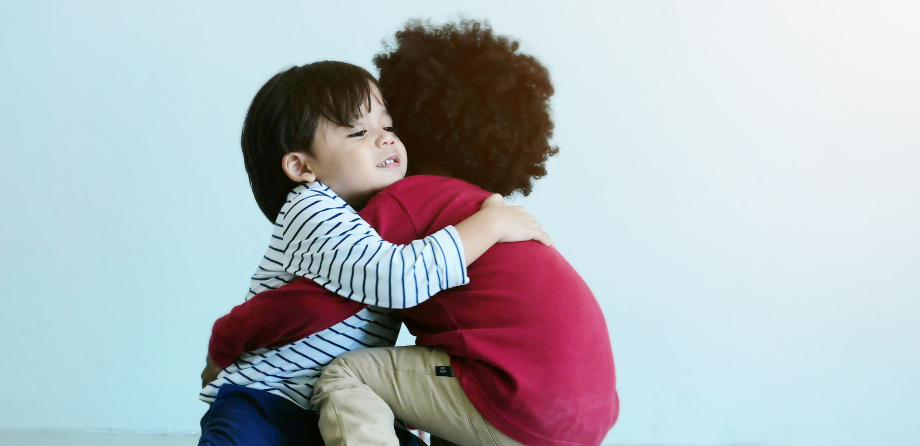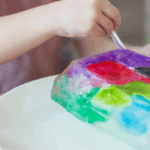
Empathy in early years: supporting children to empathise
Explore what empathy is, supporting children to empathise with others and the role of the word ‘sorry’.
What is empathy?
Empathy is the ability to recognise, understand and share the feelings of someone else. It is about being able to stand in another person’s shoes and truly feel how they do, in a given situation.
Are children naturally empathic?
Empathy development starts very early on, according to researchers. When babies cry in response to other babies crying, it could be the initial signs of empathy development. However, young children need support to refine their sense of empathy through understanding their own feelings and the feelings of others.
What can adults do to help develop a child’s sense of empathy?
There are many opportunities that lend themselves to exploring and developing empathy with children, such as by playing with them and talking to them about feelings in day-to-day practice. Role play provides great opportunities for exploring the feelings of others and posing questions about how the actions of one person may affect someone else.
Stories are a powerful way to introduce children to new feelings, as well as what to do if they have upset someone or been upset by someone else.
Perhaps the most important factor in helping children to explore and develop empathy for others is to create a safe environment where children feel able to explore their emotions with caring, helpful adults. It can help to narrate your emotions for the children (obviously keep them age appropriate) as they will then begin to learn how to handle some of those big emotions they feel such as anger, excitement and frustration.
Saying sorry…
Sorry is culturally a very important word; but in order to use it and for it to have impact, children must be developmentally ready to understand what it means and why they are saying it.
If children are made to say sorry before they understand it properly, they are merely saying a word to avoid getting into more trouble.
‘Sorry’ means that you are remorseful about what you have done (that means you want to say it) and that you will try really hard to not do it again. Until a child is able to feel remorse and appreciate how it has made the other person feel, saying sorry is merely a word.
Instead of asking young children to simply say sorry you could:
- Focus on why the child’s actions were not appropriate. You could ask the child, “How does hitting make you feel? How would you feel if somebody hit you?”, explaining that it makes people very sad because it hurts
- Ask children what they can do to make the other person feel better (this could be bringing them their favourite toy or sharing toys with them, a rub on the back, etc.)
- Support children’s understanding of appropriate behaviour and what is unacceptable by constructing and reviewing room rules together.
As adults, it is important that we understand children will need help to develop their emotional awareness, including a sense of empathy. We should talk to children about our own emotions, their emotions and the feelings of others, including characters in stories. Talking about feelings from an early age can give children a head start to understanding their own and others’ emotions and how their actions can influence how another person feels.
Looking for more support?
Our online ‘Promoting positive behaviour‘ and ‘Biting, responding sensitively‘ courses and our ‘Developing Self-Regulation, Supporting Well-Being‘ and ‘Positive behaviour in early years‘ live virtual classroom courses will help you support children with empathy.
- PSED
Similar Articles
Top tips: Supporting your team’s well-being

Early years activity: Frozen balloon explorers


